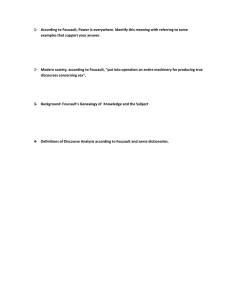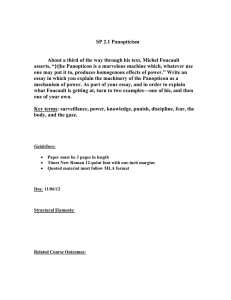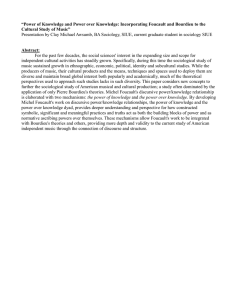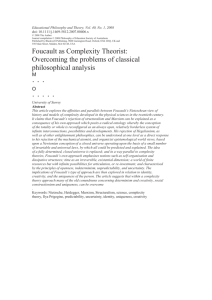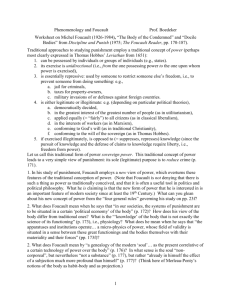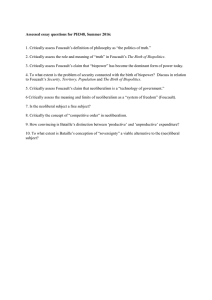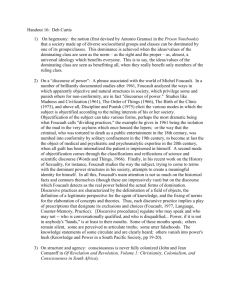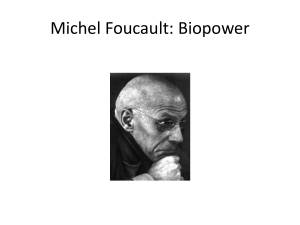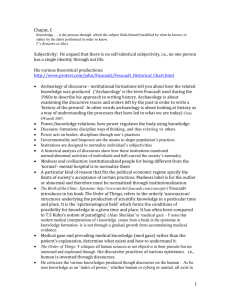Unwin chapter 2
advertisement
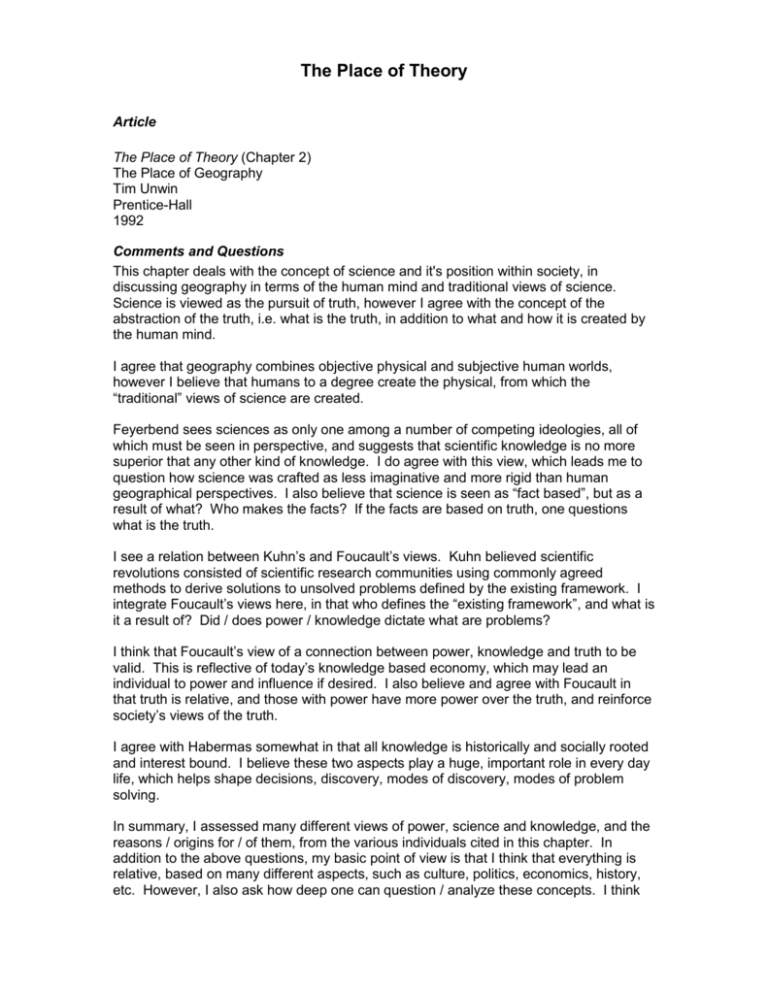
The Place of Theory Article The Place of Theory (Chapter 2) The Place of Geography Tim Unwin Prentice-Hall 1992 Comments and Questions This chapter deals with the concept of science and it's position within society, in discussing geography in terms of the human mind and traditional views of science. Science is viewed as the pursuit of truth, however I agree with the concept of the abstraction of the truth, i.e. what is the truth, in addition to what and how it is created by the human mind. I agree that geography combines objective physical and subjective human worlds, however I believe that humans to a degree create the physical, from which the “traditional” views of science are created. Feyerbend sees sciences as only one among a number of competing ideologies, all of which must be seen in perspective, and suggests that scientific knowledge is no more superior that any other kind of knowledge. I do agree with this view, which leads me to question how science was crafted as less imaginative and more rigid than human geographical perspectives. I also believe that science is seen as “fact based”, but as a result of what? Who makes the facts? If the facts are based on truth, one questions what is the truth. I see a relation between Kuhn’s and Foucault’s views. Kuhn believed scientific revolutions consisted of scientific research communities using commonly agreed methods to derive solutions to unsolved problems defined by the existing framework. I integrate Foucault’s views here, in that who defines the “existing framework”, and what is it a result of? Did / does power / knowledge dictate what are problems? I think that Foucault’s view of a connection between power, knowledge and truth to be valid. This is reflective of today’s knowledge based economy, which may lead an individual to power and influence if desired. I also believe and agree with Foucault in that truth is relative, and those with power have more power over the truth, and reinforce society’s views of the truth. I agree with Habermas somewhat in that all knowledge is historically and socially rooted and interest bound. I believe these two aspects play a huge, important role in every day life, which helps shape decisions, discovery, modes of discovery, modes of problem solving. In summary, I assessed many different views of power, science and knowledge, and the reasons / origins for / of them, from the various individuals cited in this chapter. In addition to the above questions, my basic point of view is that I think that everything is relative, based on many different aspects, such as culture, politics, economics, history, etc. However, I also ask how deep one can question / analyze these concepts. I think The Place of Theory there is a fine line between quest for discovery and critical thinking of theories and underlying concepts and total indifference. I believe society, and this planet, could not have “evolved” without some acceptance of “core” ideologies and views, some of which vary geographically. I found this chapter very difficult to follow, given my professional and educational background, as well as the audience that I perceive this reading is aiming for. However, the above is what I understood and what raised comments and questions from myself. Tom Kralidis
